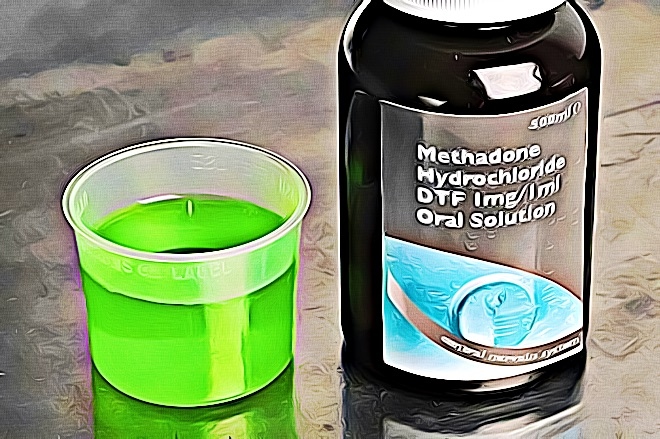People that suffer from a myriad of painful conditions often need around-the-clock analgesics to improve their quality of life, so one of the most cost-effective prescriptions that can provide instant relief includes methadone. It falls under the category of opioids, so it’s no surprise that it’s recommended for treating extreme, long-term pain.
Methadone can also be a powerful drug that can reduce withdrawal symptoms from those struggling with addiction to heroin and other heavy narcotics. While its high points promise an increased functionality and overall wellness, it requires strict medical supervision as methadone can backfire when abused, leading to further addiction and even death at its worst-case scenario.
What is Methadone Used for?
Methadone is an excellent painkiller that can successfully relieve persisting pain, but another pivotal role it plays is its ability to detoxify narcotics. This makes it a highly coveted medical treatment in recovery programs for addicts, cancer patients, and anyone who is dealing with chronic pain.
A study in BMC Psychiatry back in 2013 highlights its key participation in aiding patients to move on from their chronic conditions and mental woes, particularly since it helps people achieve sobriety at a comfortable pace.
Keep in mind that your doctor may not prescribe methadone as an analgesic if other drug interactions may have a detrimental reaction to the analgesic. Some of the medications that do not work in conjunction with methadone include the following:
- Bepridil
- Cisapride
- Dronedarone
- Fluconazole
- Itraconazole
- Ketoconazole
- Mesoridazine
- Nalmefene
- Naltrexone
- Nelfinavir
- Pimozide
- Piperaquine
- Posaconazole
- Rasagiline
- Safinamide
- Saquinavir
- Sparfloxacin
- Terfenadine
- Thioridazine
- Ziprasidone
What are the Side Effects of Methadone?
Just like any prescription medicine, it’s important to only take the dosage recommended by your doctor. Straying away from their professional direction will only increase the risk of building your tolerance, quickly facilitating addiction and increasing sensitivity to its adverse side effects.

Patients who only consume methadone – be it in the form of a tablet or solution – will likely experience the following reactions:
- Restlessness
- Upset stomach or vomiting
- Slow breathing
- Itchy skin
- Heavy sweating
- Constipation
- Sexual problems
- Weight gain
- Sleep changes
- Appetite changes
- Headache
- Stomach pain
- Dry mouth
- Flushing
- Mood changes
- Vision problems
Elderly patients also have a higher susceptibility to these side effects, all of which are normal occurrences. If the discomfort persists, it’s best to consult with your doctor so they may adjust the dosage accordingly. Keep in mind that if you miss a dose, it’s better to skip it and maintain your schedule since doubling the amount to make up for it will only lead to abuse.
While it’s an effective analgesic that can ease painful chronic conditions and help taper off withdrawal symptoms, methadone can also be a backhanded medication that can encourage habit-forming addiction. As soon as you notice the drug failing to treat you as intended, let your doctor know immediately before you grow a dependency.
Meanwhile, you need to seek immediate medical attention if you experience a more serious aftereffect such as the following:
- Trouble breathing
- Fainting or lightheadedness
- Hives or a rash
- Swollen lips, tongue, throat, or face
- Chest pain or a rapid heartbeat
- Hallucinations or confusion
- Seizures
- A hoarse voice
- Trouble swallowing
- Severe drowsiness
- Unusual menstrual periods
All About Methadone Half-Life
When ingesting methadone, a typical half-life of one dosage would stretch between 12 to 18 hours. This means that the second dosage would extend the medication’s half-life to 13 to 47 hours, though it will soon stabilize once it reaches four to five half-lives, which translates to ongoing use for three to ten days.
How Long Does Methadone Stay in your System?
The effects of methadone vary depending on multiple factors such as the person’s weight, age, metabolism, liver function, health, and other drug interactions. Some may find high traces of the medication circulating in your system for two days, though others may experience it lasting for up to 13 days.
Suboxone vs Methadone
Methadone is known for relieving extreme chronic pain, though it’s not the only drug that can provide soothing benefits. Other alternatives include suboxone, which is another form of opioid that is excellent for treating addiction.
Most doctors would prescribe methadone for patients who need its pain-relieving properties, but suboxone is only recommended for tapering off opioid dependence in recovering addicts. Both drugs also have a high risk of increasing addiction, so abusing their dosages can lead to a fatal overdose. Nonetheless, misusing methadone is a more common risk.
The Bottom Line: The Highest and Lowest Points of Methadone
Methadone is a highly effective opioid that can soothe pain and combat addiction to a myriad of narcotics, though its positive qualities will never outweigh the negative impact it can have on both the mental and physical state of a person who abuses the drug.
Think of it as like a double-edged sword that can strike back with a vengeance when it is misused, making it a painkiller that can kill its victims once tolerance develops and the prescription medication turns into abuse.
This is why methadone use has been the cause of debate in the medical industry since its successful usage is only possible when accompanied by a medical professional who can keep a close eye on the patient throughout their treatment program.
The road to sobriety is challenging, but having the right treatment program to support your journey can make a world of difference in your progress. We can help guide you every step of the way by connecting you with the best rehab centers in multiple states in the USA.
https://medlineplus.gov/druginfo/meds/a682134.html
https://bmcpsychiatry.biomedcentral.com/articles/10.1186/1471-244X-13-190
















